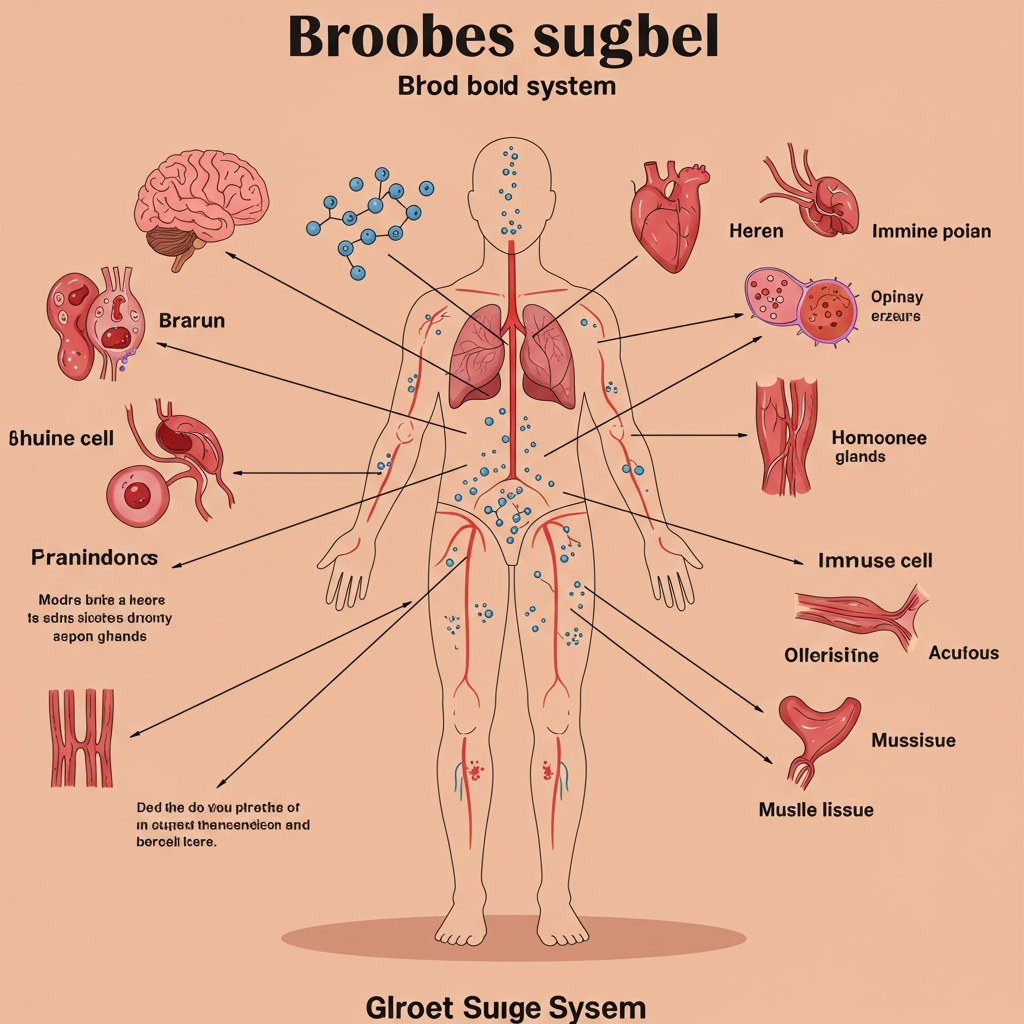The Blood Sugar Revolution: Why Balancing Glucose is Your Key to Optimal Health
In our modern world of convenient processed foods and sedentary lifestyles, we're facing an epidemic that affects virtually every aspect of our health. Yet, most conventional medical approaches still treat the symptoms rather than addressing the fundamental root cause: blood sugar dysregulation. As a functional medicine practitioner, I've witnessed countless patients transform their health by focusing on this critical foundation of wellness. Let's explore why blood sugar balance isn't just about preventing diabetes—it's the cornerstone of your entire health journey.
The Blood Sugar Connection to Everything
When we talk about blood sugar, we're not just discussing diabetes. Blood sugar imbalances are connected to nearly every chronic disease plaguing our society: heart disease, dementia, cancer, depression, hormonal issues, skin problems, and even accelerated aging.
Why? Because glucose isn't just fuel—it's a powerful signaling molecule. When blood sugar rises too high or fluctuates wildly throughout the day, it triggers a cascade of inflammatory responses throughout the body. This inflammation becomes the common denominator in virtually all chronic diseases.
The average American consumes about 152 pounds of sugar annually and eats processed foods that rapidly convert to sugar in the bloodstream. Each blood sugar spike triggers insulin release, and over time, our cells become numb to insulin's effects—leading to insulin resistance, the precursor to type 2 diabetes and metabolic syndrome affecting over 88% of Americans to some degree.

Beyond Diabetes: How Blood Sugar Affects Your Whole Body

Blood sugar dysregulation impacts far more than your pancreas:
Brain health: Research shows Alzheimer's disease is now being called "type 3 diabetes" because of the strong connection between insulin resistance and cognitive decline. Blood sugar spikes create neural inflammation and contribute to brain fog, mood disorders, and eventual neurodegeneration.
Immune function: Elevated blood sugar significantly impairs immune cell function. Studies show that even a single sugary meal can suppress your immune system for hours, making you more vulnerable to infections and reducing your body's ability to fight disease.
Hormonal balance: Insulin resistance disrupts the delicate balance of other hormones, including sex hormones and thyroid hormones. This explains why conditions like PCOS, infertility, and thyroid disorders often improve when blood sugar is stabilized.
Energy and aging: The energy factories in your cells—mitochondria—are damaged by blood sugar fluctuations. This accelerates the aging process at the cellular level and contributes to the fatigue that plagues so many Americans.
The Blood Sugar Solution: Practical Steps to Restore Balance
The good news is that blood sugar balance can be restored through straightforward lifestyle changes that don't require medication:
-
Embrace a low-glycemic diet: Focus on whole, unprocessed foods that don't trigger blood sugar spikes. This means abundant non-starchy vegetables, healthy fats, quality proteins, and limited amounts of low-glycemic fruits and whole grains. Remember that fat doesn't raise blood sugar—processed carbs do.
-
Practice strategic eating patterns: Consider intermittent fasting or time-restricted eating to give your pancreas a break and improve insulin sensitivity. Even starting with a 12-hour overnight fast can make a significant difference.
-
Movement is medicine: Exercise depletes muscle glycogen and activates insulin-independent glucose transporters, effectively lowering blood sugar. Even a 10-minute walk after meals can dramatically reduce post-meal blood sugar spikes.

-
Manage stress: Stress hormones like cortisol directly raise blood sugar. Incorporate stress-reduction practices like meditation, deep breathing, or nature walks into your daily routine.
-
Prioritize sleep: Poor sleep directly impairs insulin sensitivity. Even one night of sleep deprivation can make you temporarily insulin resistant. Aim for 7-8 hours of quality sleep in a cool, dark room.
-
Consider targeted supplementation: Chromium, magnesium, berberine, cinnamon, and alpha-lipoic acid have all been shown to support healthy blood sugar metabolism. Always consult with a healthcare provider before starting supplements.
The power of these interventions cannot be overstated. I've seen patients reverse decades of metabolic damage in mere weeks by implementing these fundamental changes.
Blood sugar balance isn't just another health metric—it's the foundation upon which optimal wellness is built. When we address this root cause, seemingly unrelated symptoms often resolve spontaneously, energy returns, and the body's innate healing capacity is restored.
Remember, health is not the absence of disease but a state of vitality and resilience. By stabilizing your blood sugar, you're not just preventing diabetes—you're unlocking your body's full potential for healing and vibrant living.
References:
-
Gujral UP, Pradeepa R, Weber MB, Narayan KM, Mohan V. Type 2 diabetes in South Asians: similarities and differences with white Caucasian and other populations. Ann N Y Acad Sci. 2013;1281(1):51-63. doi:10.1111/j.1749-6632.2012.06838.x
-
de la Monte SM, Wands JR. Alzheimer's disease is type 3 diabetes-evidence reviewed. J Diabetes Sci Technol. 2008;2(6):1101-1113. doi:10.1177/193229680800200619







1 comment
ALL THANKS TO DR. Aboda WITH HIS HERBAL PORTION I WAS COMPLETELY HEALED FROM BREAST CANCER. I’m here again to appreciate it. DR.Aboda God will always continue to bless you more abundantly, for the good works you have done in my life, I will always keep on writing good and posting my testimonies about you on the Internet, I’m W VALARY. from TEXAS . I was tested breast cancer positive, I saw a blog on how DR.Aboda cured people with his herbal portion, i did not believe in natural medicine but i just decided to give him a try, I contacted him, and explain my situation to him, few day later he sent me the medication after taking DR. Aboda herbal medicine for a few weeks. I went to the hospital for a check up so luckily my immune system improved, restored & was healed with his herbal portion, i am so happy. If you have any type of cancer problem or you are also infected with any kind of disease. dr-aboda-solution-home.jimdosite.com